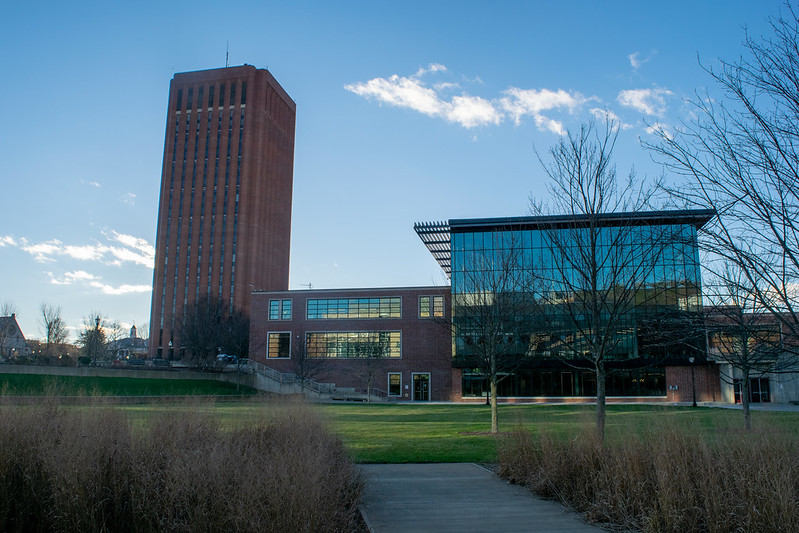Chancellor Kumble Subbaswamy announced that the University of Massachusetts COVID-19 risk moved from “Elevated” to “High” in an email to the campus community Sunday morning.
“Contact tracing data indicates that transmission of the virus is especially prevalent among some undergraduate students not following social distancing and mask protocols,” Subbaswamy wrote.
According to the email, there were 298 positive cases from Feb. 2 to Feb. 4 and there are currently 398 active cases in the campus community. The Daily Collegian was not provided updated COVID-19 information from the last two days but will update our reporting when the information is available.
According to the email, the University made the decision to raise the risk level due to the increase in positive COVID-19 cases since Thursday. The decision was made in consultation with Commonwealth’s Department of Public Health. The University increased their risk level to “elevated” two days ago, meaning it has risen to the maximum level within the week.
The new designation is going into effect Sunday at 2 p.m. and will stay in place for a minimum of 14 days. The chancellor wrote that it will have a significant impact on both the on-campus and off-campus community and will only be lifted “when public health conditions improve substantially.”
The new public health measures are a transition to entirely remote classes, all students, whether on-campus or off-campus in the Amherst area, are directed to self-sequester and the University is recommending that students do not travel from or into the surrounding area. Additionally, all campus athletic competitions and practices have been cancelled.
“Failure to comply with these directives is a violation of the Code of Student Conduct and will result in disciplinary action, which may include removal from residence halls and/or suspension,” the chancellor wrote.
According to the email, self-sequestering means that students must stay at home except for meals, twice-weekly COVID-19 testing and for medical appointments. Testing and vaccinations clinics will continue operating as scheduled and students who work in these locations or in laboratories are exempted from the above restrictions in order to continue working.
“Let this moment be a stark reminder to any of you who may have been cavalier about COVID-19 that your individual behavior has a profound impact on everyone in your community,” Subbaswamy wrote. “If each of us follows proper protocols to help protect the community, we can get through this trying time sooner and stronger.”
The University encouraged students performing other essential work, including residential life and transportation, and on-site or hybrid staff to consult with their supervisors about any potential changes in their schedule. Last, research, clinical activities and core operations will continue, according to the email.
“To many of you these may seem like drastic measures, but faced with the surge in cases we are experiencing in our campus community, we have no choice but to take these steps. By acting aggressively now, we are confident we can contain this surge and more quickly return to normal operations, including a resumption of in-person classes and organized student activities,” Subbaswamy wrote. “Our extensive planning process anticipated the possibility of this occurrence, and we are prepared to take swift and decisive action to protect our community. Be assured that in all we do, the health and well-being of our students, faculty and staff are of paramount concern.”
The chancellor reminded students of their collective responsibility to do their part to protect the community.
“I deeply appreciate the vast majority of students who are complying with public health protocols,” he wrote.
Cassie McGrath can be reached at [email protected]. Follow her on Twitter @cassiemcgrath_.




















